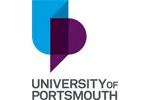

the United Kingdom
University of Portsmouth| The award | How you will study | Study duration | Course start | Domestic course fees | International course fees |
|---|---|---|---|---|---|
| BSc (Hons) | Full-time, Sandwich | 3 - 4 years | September | - | - |
Overview
Biomedical scientists help identify rare diseases, diagnose disease, research disease processes and monitor patients’ treatment. On this accredited BSc (Hons) Biomedical Science degree, you’ll develop the expertise you need to start making your own contribution to the medical advances of the future.
This course is accredited by the Institute of Biomedical Science (IBMS) – a mandatory requirement if you want to work in the NHS after graduation. It's also accredited by the Royal Society of Biology.
Course highlights
Accredited by:
This programme has been accredited by the Institute of Biomedical Science (IBMS) and the Royal Society of Biology, following an independent and rigorous assessment. Accredited degree programmes contain a solid academic foundation in biological knowledge and key skills, and prepare graduates to address the needs of employers. The accreditation criteria require evidence that graduates from accredited programmes meet defined sets of learning outcomes, including subject knowledge, technical ability and transferable skills.
Careers and opportunities
Whether it's processing tests for diseases such as coronavirus or providing diagnosis services to GPs, accident and emergency departments and other health services, registered Biomedical Scientists play a key role in public health.
They analyse fluid and tissue samples from patients in order to identify diseases or evaluate the effectiveness of different treatments. In fact, more than 70% of NHS diagnoses are based on lab findings by biomedical scientists, so it's a profession that's always in high demand.
On this BSc (Hons) Biomedical Science degree, you’ll learn to diagnose, monitor and manage health conditions. You’ll learn from our outstanding team of biomedical scientists and researchers whose work is shaping the understanding of conditions, such as brain tumours.
HCPC registration
After you've graduated and completed 12 months of work-based learning within an Institute of Biomedical Science (IBMS) approved clinical training laboratory, you'll be eligible to apply for registration with the Health and Care Professions Council (HCPC) and work as a Biomedical Scientist in the NHS and private settings.
Royal Society of Biology membership
You can also apply for Associate Membership of the Royal Society of Biology, which gives you access to professional networks and exclusive grants and awards.
What areas can you work in with a biomedical science degree?
You can use your biomedical science knowledge in related fields such as:
Graduate roles and destinations
Roles recent graduates have gone on to do include:
They've gone on to work for companies such as:
Potential salary
As a biomedical scientist in the NHS in 2021, you could expect a starting salary of £25,655 moving up to £31,534 (Band 5).
With more experience, you could earn from £32,306 to £39,027 (Band 6) and with a role as a senior biomedical scientist, you could make between £40,057 (Band 7) and £53,219 (Band 8a), or more as a consultant biomedical scientist.
Placement year
After your second or third year, you can do an optional work placement year to get valuable longer-term work experience in the industry. Placements give you the opportunity to apply what you've learnt so far in a real workplace, boosting your employability and making you attractive to employers after graduation.
If you do your placement in an IBMS-approved NHS pathology laboratory, you can complete the IBMS registration portfolio. This means you'll be eligible to apply for registration with the HCPC as a Biomedical Scientist when you graduate.
Our students have completed clinical placements at the following hospitals:
Whichever route you choose, you'll receive support and guidance. Our specialist team of Science and Health Careers advisors can help you with finding a work placement and improving your employability skills. They'll provide you with a database of placement vacancies, support with your job search – including help with applications and interviews – and support throughout your placement year.
Summer research placement
You'll also have the opportunity to apply to a study exchange scheme, which involves a summer research placement through the Turing Scheme.
Ongoing careers support
After you graduate, you can get help, advice and support for up to 5 years from our Careers and Employability Service as you advance in your career.
https://www.port.ac.uk/study/undergraduate/undergraduate-fees-and-student-finance
112-120 from 3 A levels, or equivalent, to include 40 points from Biology and 40 points from a second Science subject or Mathematics. For A levels which include a separate science practical component, a pass is desirable and may strengthen an application.
English language proficiency at a minimum of IELTS band 6.0 with no component score below 5.5.
Below are some suggested courses at other providers that you may also be interested in:
Research in Special Needs Education Master Degree
Faculty of Educational Sciences, University of Oslo
Find out moreConsider a Foundation or Pathway course at University of Portsmouth to prepare for your chosen course:
If you do not meet the entry requirements for this course then consider one of these courses from another institution:
There are 527 other courses listed from University of Portsmouth. A selection of these are displayed below:
Join the StudyLink email list and never miss a chance to turn your study abroad dreams into reality!

Find out more about studying in the United Kingdom